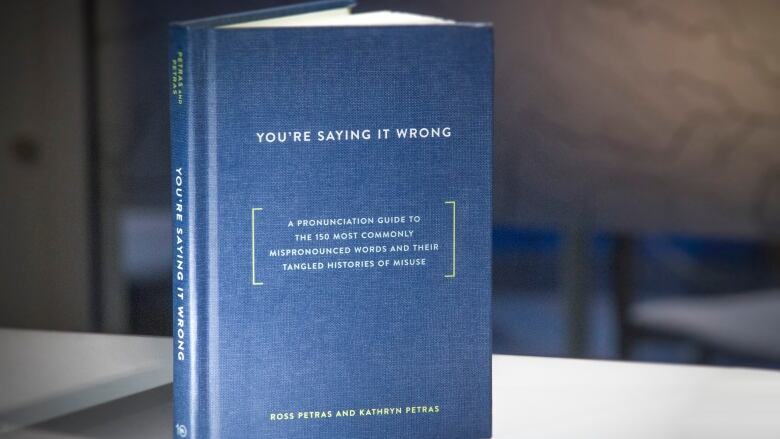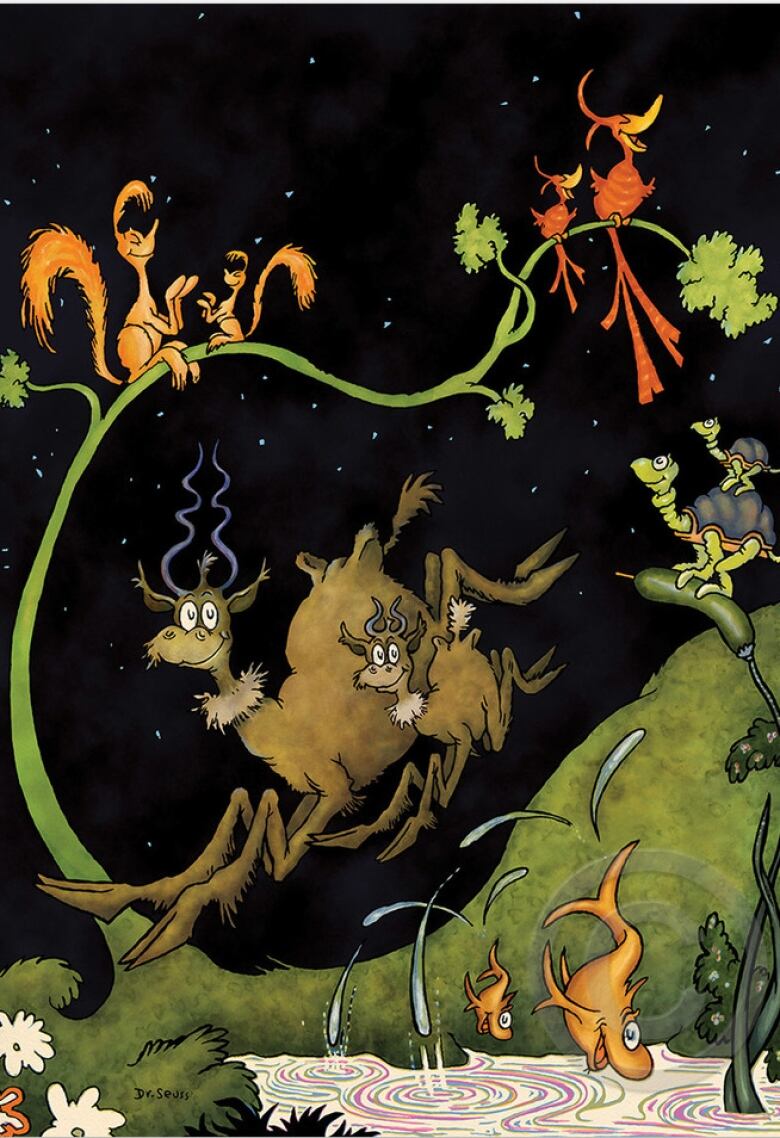New book aims to settle debate on misused and mispronounced words
Ross and Kathy Petras look at the history of 150 commonly mispronounced words

The one thing that's guaranteed to get a language-lover all riled up is when people mispronounce or misuse words.
Every time we hear "irregardless" or "Artic,"our teeth grind. The polite ones just winceand say nothing. The truly passionate speak out, which usually only earns eye-rolls and that other hated word,"whatever".
Now, there is a book to help those who are challenged by hard-to-pronounce words. It's calledappropriately, You're Saying It Wrong: A Pronunciation Guide to the 150 Most Commonly Mispronounced Words and their Tangled History of Misuse.
The book is written by brother and sister team Ross and Kathy Petras, who have collaborated on several humourous books. This one is written with their tongues in cheekbut it also has a serious side and a few surprises.
Contested pronunciations
The two say it all startedwhen they both realised they had been mispronouncing"detritus".
"I argued with my husband and looked it up and was horrified to find out that I had been mispronouncing it wrong all these years,"Kathy Petras said.
The book doesn't just tackle mispronunciations among the classic mistakes are bruschetta, poinsettia and homage it also throws in a few phrases that set purists's teeth on edge.
One example: "I could care less,"which the authors note has been irritating people since the 1950s, which is long enough to get it into dictionaries.
"Our goal in the book was to compromise between the real purists who say nothing can change and the other guys who say anything can go. I think it's better to go in the middle," Ross Petras said.
Pet peeves persist
The reality of many people's language pet peeves is that they are often firmly rooted in the distant past. For yearsI lived with the absurd belief that no infinitive should ever be split.
If the idea of the split infinitive is new to you, it's most famously captured in Star Trek's "to boldly go,"a solecism guaranteed to send my old English teacher into a rant punctuated with blows on the desk with a wooden ruler.
"To. Go. Boldly."
But really. Whatever. I got over that one. The point is that his hatred of the split infinitive was taught to him decades before by a teacher almost certainly immersed in the arcane rules of Latin grammar. So if I stuck with his teaching, I would actually be enforcing a grammatical prejudice from 70 years ago. Times change. Usage changes.
"That's the interesting thing about words. They do change over time," Ross Petras said. "Language really isn't as solid as we seem to think it is. We just don't live for hundreds of years and see the changes happen."
GIFdebate
English being the language that it is, it's pretty pointless trying to force people to use a preferred pronunciation even if you invented the word.
Think of the word "GIF" meaning those cute little animations that you can pop into instant messages.Someone actually invented that word.
The man who came up with it, SteveWilhite, has said hedecided it was pronounced with a soft g: "jif". But the Oxford English Dictionary also accepts the hard g: "giff."
"The wrong pronunciation becomes the right pronunciation because so many people say it," said Ross Petras, who also recommendthat "giff" pronouncers keep their mouths shut around Wilhite.
Fighting the trend
Sometimeswhen the world decides on how a word is pronounced, that's just the way it is, even when it's someone's name.

Take the children's author, Dr. Seuss. He thought his name was actually pronounced "Soice",rhyming with "voice."
No one else did. He even tried to fight back when he started to become famouswith a friend writing this little ditty, which isquoted in the book:
"You're wrong as the deuce
And you shouldn't rejoice
If you're calling him Seuss.
He pronounces it Soice."
Eventuallyeven Dr. Seuss gave up a losing battle and started calling himself what everyone else was already calling him.
2nd volume in works
Kathy and Ross Petras already have enough material for a second volume. It seems that every reader of their bookhas something to share. The most popular problem phrase so far for a possible sequel: "for all intensive purposes."
The fact that so many people still care about the language makes them happybecause they both worry that standards are slipping and that writers today use fewer and easier words than even a generation ago.
My submission to them for part two: evacuate, which can be quite correctly used to describe people being evacuated, not just buildings. It's recognised by the Oxford English Dictionary, people. Get over it.
With files from CBC's Maritime Noon












_(720p).jpg)


 OFFICIAL HD MUSIC VIDEO.jpg)
.jpg)



























































































